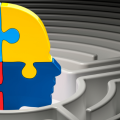Collaboration and teamwork are essential skills that empower students to succeed not only academically but also in the real world. One crucial aspect of successful teamwork is understanding individual differences. Every person brings their own unique perspective and way of perceiving the world. These differences, while valuable, can also present challenges when it comes to working together. To build cohesive and productive teams, students must first understand themselves and those around them.
Creating a classroom environment where students can effectively work together is a goal shared by educators and team building providers alike. That’s why we’re excited to introduce you to a valuable tool for building collaborative classrooms: the DOPE Bird Personality Test. A tool that not only helps students discover their unique strengths and preferences but also adds a touch of fun to the learning process.
Developed by Richard M. Stevenson, the DOPE Bird Personality Test has gained popularity in educational settings due to its engaging nature. This test assigns four bird personalities – Dove, Owl, Peacock, and Eagle – to individuals, creating a framework that resonates with students, making it more relatable and enjoyable.
In this blog post, we will explore how the DOPE Bird Personality Test can be effectively utilised in classrooms catering to high school aged children. But that’s not all. We are thrilled to offer you a free online DOPE test and results kit. Our aim is to empower educators like you to facilitate meaningful discussions and guide students towards self-reflection, all while making the journey of discovery an exciting one.
So, whether you’re an educator looking to enhance collaboration in your classroom or a student intrigued by the novelty of the four bird personalities, join us as we delve into the world of building collaborative classrooms through the lens of the DOPE Bird Personality Test. Let’s unlock the potential within each student and foster a positive, engaging, and collaborative learning environment together.
The D-O-P-E explained

Dove:
Doves are known for their calm and nurturing nature. They excel in creating a harmonious and supportive atmosphere within a team. Doves are empathetic listeners and are often the peacemakers in group settings. They prioritise building relationships and are great at resolving conflicts diplomatically.

Peacock:
Peacocks are creative, outgoing, and expressive. They bring vibrancy and enthusiasm to the team. Peacocks thrive in environments that allow them to showcase their innovative ideas and artistic abilities. They excel at public speaking and enjoy being in the spotlight, often providing inspiration and keeping the team motivated.

Owl
Owls are analytical and detail-oriented individuals. They have a natural inclination for problem-solving and critical thinking. Owls thrive in structured environments and excel at research and organising information. They are often the voice of reason and can provide valuable insights to help the team make informed decisions.

Eagle
Eagles are assertive, confident, and goal-oriented individuals. They possess strong leadership qualities and are natural decision-makers. Eagles have a strategic mindset and are driven to achieve results. They are often seen taking charge and driving the team towards success.
By understanding the different bird personalities, teachers and students can gain insights into how they and their peers prefer to communicate, solve problems, and contribute to the team. This understanding lays the foundation for fostering effective collaboration and building cohesive and successful classroom teams.
Benefits
Understanding personality types through the DOPE Bird Personality Test can have numerous benefits for students in a classroom setting. Let’s delve into some of the advantages:
1. Fostering Empathy and Appreciation for Diverse Perspectives:
When students are aware of their own and their peers’ personality types, it enhances their ability to understand and appreciate different perspectives. They begin to recognise that each person brings unique strengths and approaches to the table. This newfound empathy promotes a culture of respect and collaboration within the classroom.
2. Self-Discovery and Personal Growth:
The DOPE test allows students to gain insights into their own strengths, preferences, and communication styles. This self-awareness empowers students to leverage their strengths effectively and identify areas for personal growth. It encourages them to reflect on their behaviours and adapt their approach when working in teams, leading to personal development and increased self-confidence.
3. Improved Communication and Collaboration:
When students understand their own and their peers’ personality types, it becomes easier to navigate communication challenges. They can adapt their communication styles to better connect and collaborate with others. For example, a Dove may focus on fostering harmony and understanding, while an Eagle may prioritise clear and concise communication. This enhanced communication leads to more effective collaboration and reduces misunderstandings within the classroom.
4. Enhanced Problem-Solving and Decision-Making:
The diverse perspectives and strengths represented by the different bird personalities contribute to more well-rounded problem-solving and decision-making processes. Students can leverage the analytical skills of Owls, the creative ideas of Peacocks, the leadership qualities of Eagles, and the empathetic approach of Doves to find comprehensive solutions to challenges. The combination of these diverse strengths promotes innovative thinking and robust decision-making within the classroom.
Implementing the DOPE Test in the Classroom
Implementing the DOPE Bird Personality Test in the classroom requires thoughtful planning and effective facilitation. Here are some practical tips for teachers to successfully integrate the test into their classrooms and guide meaningful debriefing sessions:
1. Introducing the DOPE Test:
- Start by explaining the purpose of the test and how it can benefit students in understanding their own strengths and preferences.
- Emphasise that the test is not about labelling or limiting students but rather about self-discovery and fostering effective collaboration.
- Highlight the fun and engaging aspect of the four bird personalities, as students often appreciate the novelty of the test.
2. Delivering the Test:
- Provide students with clear instructions on how to take the test. If using the online version, ensure they have access to the necessary devices.
- Assure students that their responses will remain confidential and that the purpose of the test is to enhance self-awareness and teamwork.
- Set aside dedicated time for students to complete the test and encourage them to answer honestly based on their genuine preferences and behaviours.
3. Debriefing Sessions:
- Organise debriefing sessions to discuss the results with students individually or in small groups.
- Create a safe and inclusive environment where students feel comfortable sharing their experiences and insights.
- Guide students in reflecting on their strengths, areas for growth, and how their personality traits can contribute to effective collaboration within teams.
- Encourage students to share their thoughts on how they can adapt their communication and problem-solving strategies when working with peers of different personality types.
4. Age-Specific Tips:
For junior school:
-
- Incorporate interactive activities and games to explore the different bird personalities in a fun and engaging manner.
- Facilitate discussions on how understanding personality differences can lead to more effective teamwork and improved relationships.
- Since the original DOPE test might contain complex language or concepts, it might be beneficial to use a simplified version specifically designed for younger individuals. These adaptations can make the test more accessible and age-appropriate. For example the question ‘I like people who are.’ You may explain this question is asking what kind of people you enjoy being around or what qualities you think are good, like being nice, funny, smart, or friendly.
For senior school:
-
-
- Encourage self-reflection and goal-setting based on their personality traits.
- Provide opportunities for students to apply their knowledge of the DOPE test in real-world scenarios, such as group projects or problem-solving activities.
-
Keep in mind that personality traits are still developing during adolescence, and there may be more variability and flexibility compared to adulthood. While the DOPE test can provide insights, it should not be seen as a definitive assessment of personality.
Building collaborative classrooms is a journey that requires understanding, self-reflection, and effective teamwork. The DOPE Bird Personality Test provides a valuable tool for teachers to unlock the potential within their students and cultivate an environment that embraces individual differences while fostering collaboration. The DOPE Test serves as a basic profile tool that offers insights into students’ personality types and preferences. It provides a foundation for understanding oneself and others, enabling students to develop effective communication and collaboration skills. By recognising their own strengths and weaknesses, students can harness their unique qualities to contribute meaningfully to team efforts.
However, as students progress to senior school and leadership roles, the exploration of strengths and weaknesses will become more refined. This is where behavioural profiling tools like the Belbin Team Roles can play a significant role. The Belbin Team Roles delve deeper into individual behaviour within a team context, offering a more comprehensive understanding of how students interact, contribute, and lead.
FREE DOPE Personality Test
We are thrilled to offer you a free online DOPE test and results kit. Our aim is to empower educators like you to facilitate meaningful discussions and guide students towards self-reflection, all while making the journey of discovery an exciting one.





Recent Comments